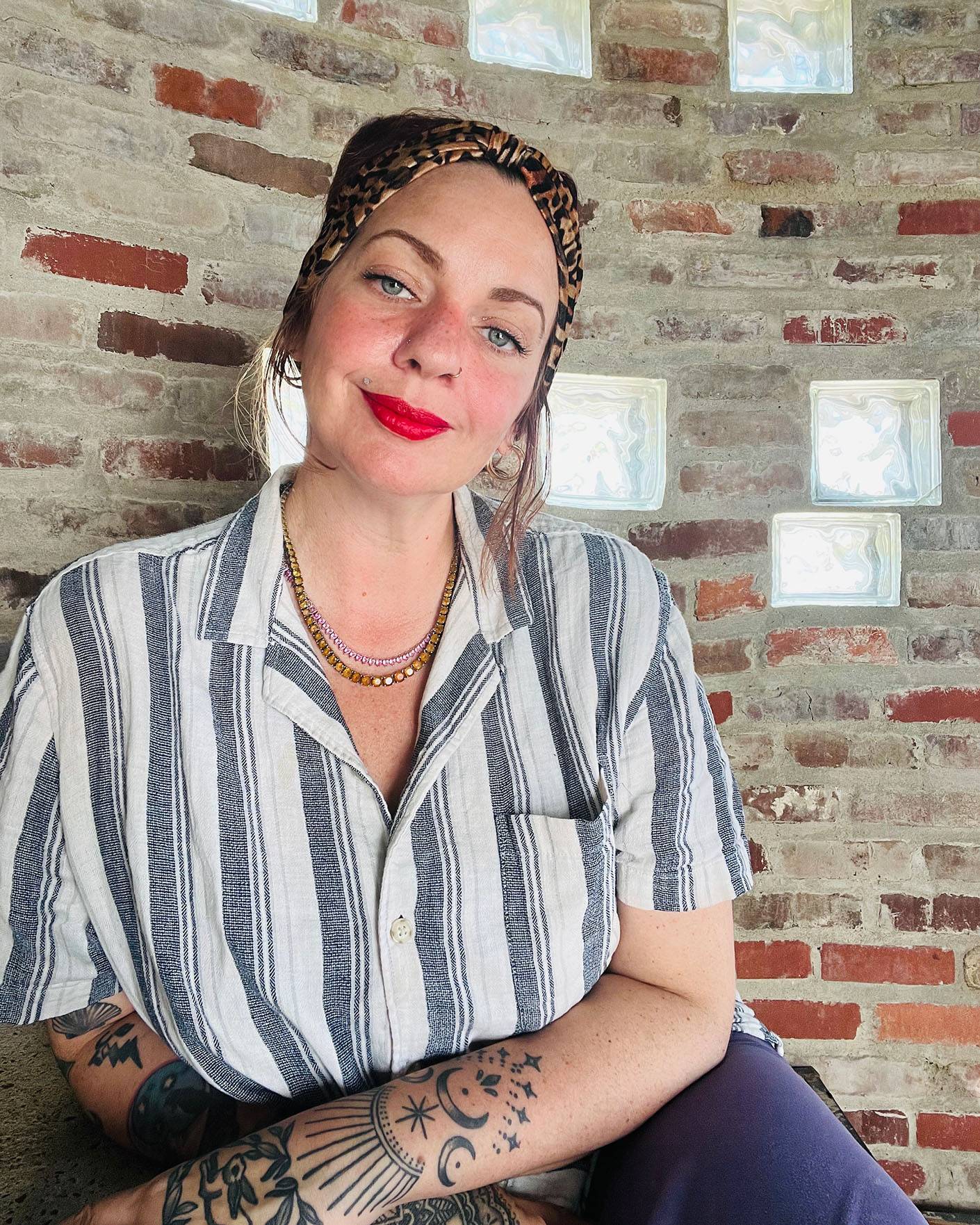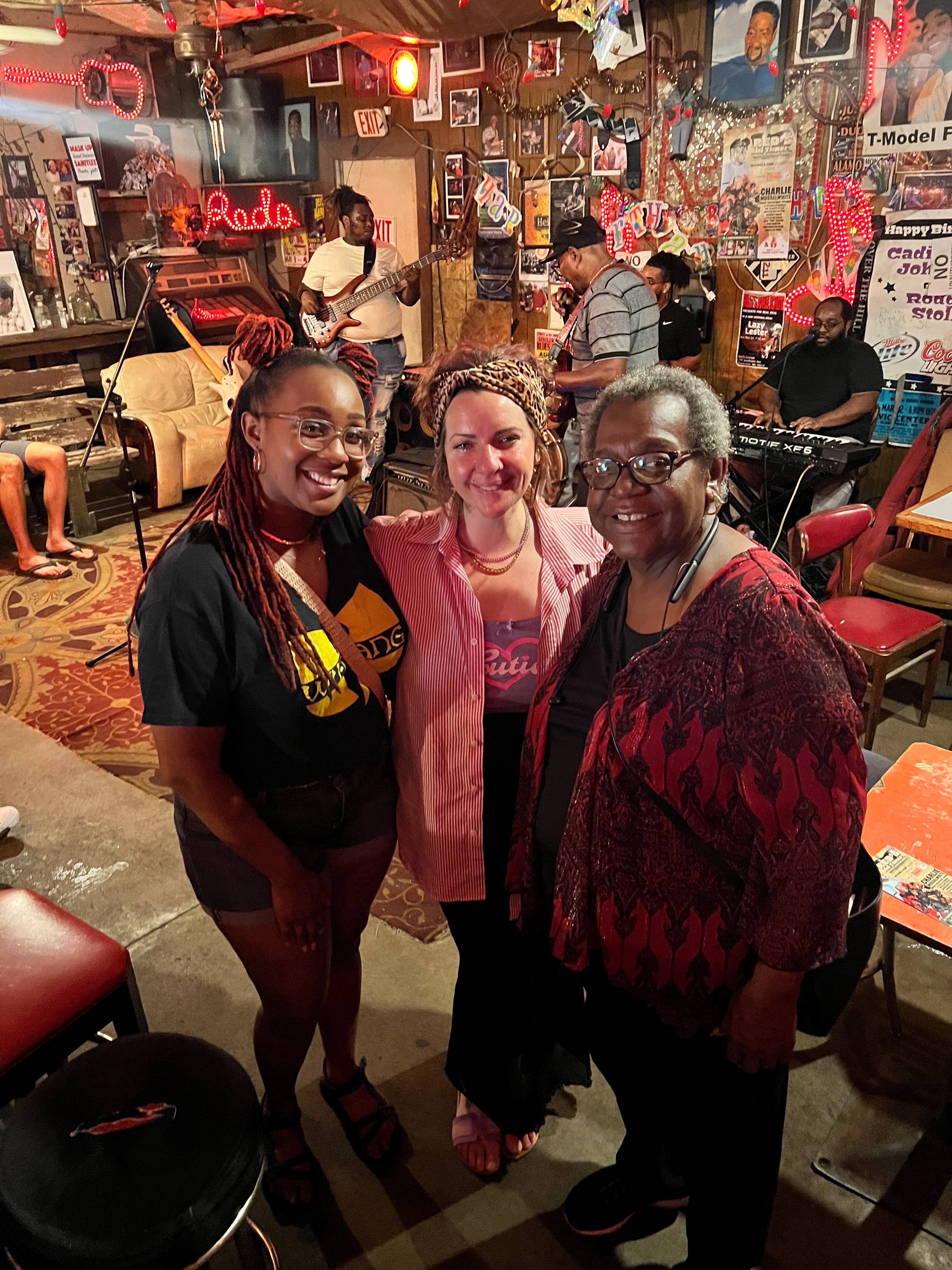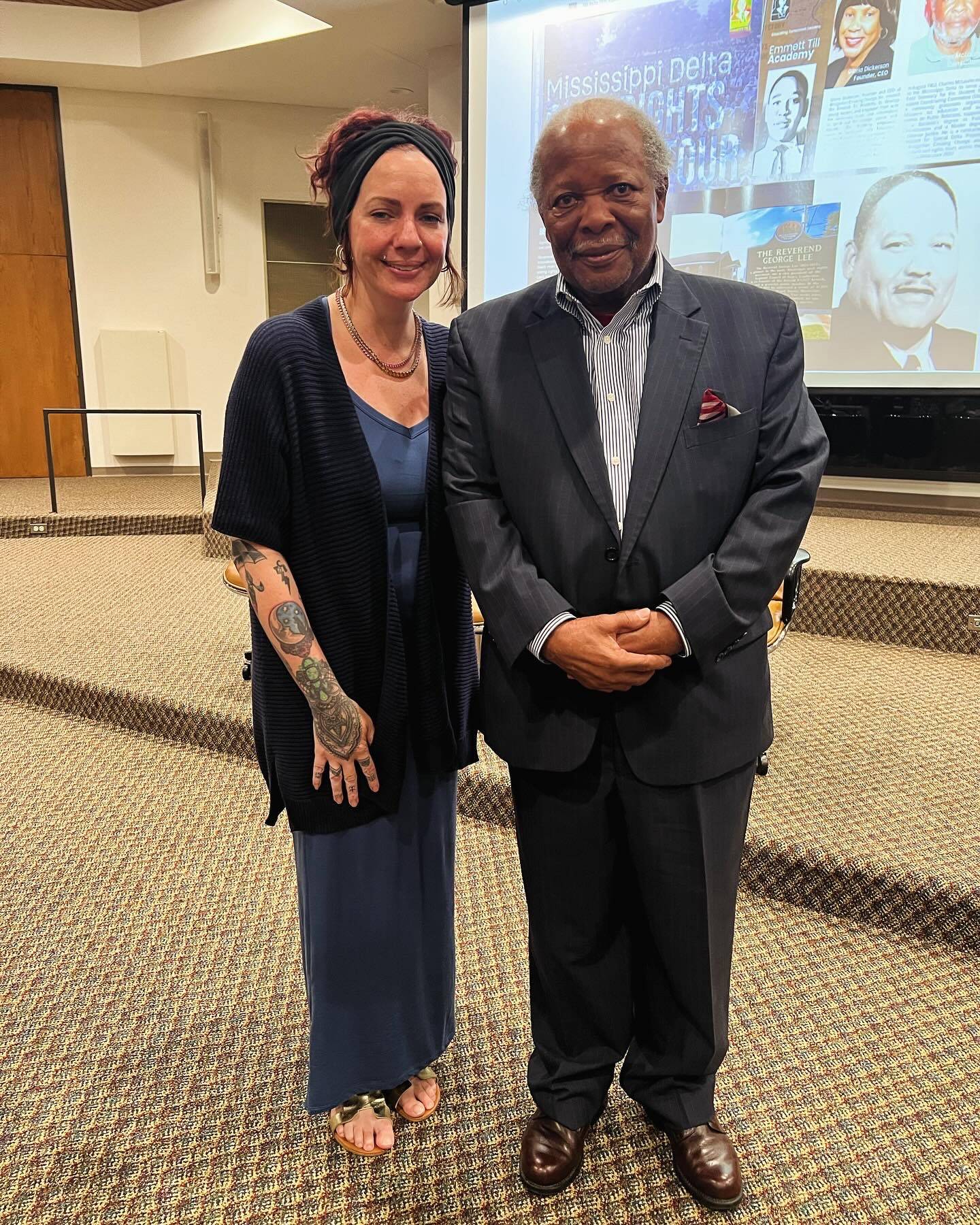
Mandy Truman, a fourth-year doctoral student in the Department of Geography and Environmental Studies at Texas State University, recently completed archival work in the J.D. Williams Library at the University of Mississippi through the Study of the South Research Fellowship.
The Fellowship, sponsored by Ole Miss’ Center for the Study of Southern Culture and the Department of Archives and Special Collections, awards one qualified scholar a $1,500 stipend to conduct research in the library and the opportunity to publish an essay in the university's online publication, Study the South.
Truman’s dissertation will focus on blues culture in the Mississippi Delta region. Thanks to funding from the Fellowship, she spent the summer in Clarksdale, the location of her case study, and Oxford.
“I had access to their archives, which was amazing,” Truman said. “They have an incredible Blues and Special Collections archive, which includes a lot of civil rights history and the entire Living Blues Magazine collection. It was a perfect opportunity because it’s only about an hour from Clarksdale, and I was surrounded by extremely knowledgeable people on this history.”

In 2017, as an undergrad at Sam Houston State University, she participated in a geography field course to the Delta in a 15-passenger van. That’s when she was first introduced to Clarksdale, an experience she called “a life-changing trip.”
After seeing how blues and civil rights history are presented in Clarkdale, Truman knew she wanted to focus on the city’s history in her future research. Although she has visited the region many times, she decided a three-month stay to fully take in the culture and to get to know the community there would be impactful.
“There has been a blues tourism industry developing in the city for a while,” she said. “But I noticed a portion of town that was thriving and growing, and right across the train tracks, there was a part of town that was seeing no economic benefits whatsoever.”
After some initial research, Truman found that during segregation, those train tracks provided a physical racial boundary. The part of town seeing no economic benefits was historically the Black district. The part of town where blues tourism developed is considered the side of town made of white residents, where blues music would’ve never been heard during the Jim Crow Era.

“The part of town is called the New World District,” she said. “It’s where the city’s civil rights and blues history occurred. It has been ignored, allowed to decline, and historic buildings are being demolished. The side benefiting from blues tourism is mostly run by white business owners. I wanted to understand this history and listen to the residents' stories to discover what life was like in the New World District when it was thriving.”
While she interviewed residents, they were eager to discuss their memories of the New World. Some shared their involvement in the Civil Rights Movement. They were hopeful that this history and the significance of this part of town would finally be acknowledged.
“My goal is to bring attention to the rich history of the New World District and for people to understand the blues culture being celebrated across the tracks, occurred on this side of town,” she said. “This is their history and culture.”
In addition to publishing her dissertation, Truman hopes to produce something for the residents to read so they will know that others will be learning about the history of the New World District.
Visit TXST’s Department of Geography and Environmental Studies webpage for more information about the program.